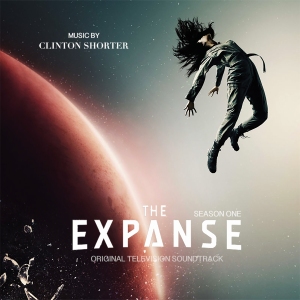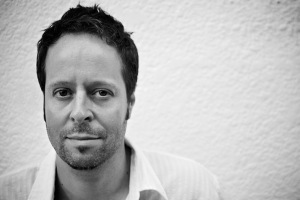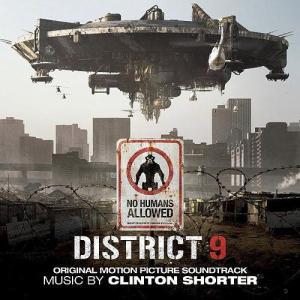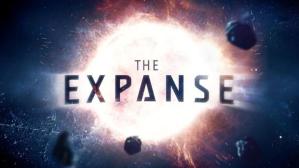The Expanse: Interview: Composer Clinton Shorter
Hailed by the Hollywood Reporter as one of the “Young Composers to Watch”, Clinton Shorter’s first film, Come Together. turned out to be an indie hit and led to more […]
Hailed by the Hollywood Reporter as one of the “Young Composers to Watch”, Clinton Shorter’s first film, Come Together. turned out to be an indie hit and led to more […]
 Hailed by the Hollywood Reporter as one of the “Young Composers to Watch”, Clinton Shorter’s first film, Come Together. turned out to be an indie hit and led to more work on the indie scene in Vancouver, including a short directed by Neill Blomkamp entitled Alive in Joburg, which was the catalyst for District 9. With almost a dozen feature films to his credit Clinton has also worked on over 300 episodes of television, including Intelligence, the Showtime series House of Lies, Code Black, Colony and the Syfy hit The Expanse. He recently took time to answer some questions from Paul Simpson…
Hailed by the Hollywood Reporter as one of the “Young Composers to Watch”, Clinton Shorter’s first film, Come Together. turned out to be an indie hit and led to more work on the indie scene in Vancouver, including a short directed by Neill Blomkamp entitled Alive in Joburg, which was the catalyst for District 9. With almost a dozen feature films to his credit Clinton has also worked on over 300 episodes of television, including Intelligence, the Showtime series House of Lies, Code Black, Colony and the Syfy hit The Expanse. He recently took time to answer some questions from Paul Simpson…a
a
a
What are your first musical memories? Were you brought up in a musical household, and what instruments did you learn?
My dad was a machinist but what I most remember about him were his interests outside of that world. He was a man that had a darkroom, a workshop where he built a sailboat, he restored cars, made intricate wood carvings, built a cabin… He didn’t stop and if you wanted to spend time with him he’d tell you to pull up a chair and watch. There was one common thread in all these interests: music was playing during all of them. I didn’t get much exposure to concert music but I got a heavy dose of Pink Floyd, Steely Dan, Alan Parsons Project, and Joni Mitchell. I remember he got Pink Floyd The Wall for Christmas and he played it all day. I played trombone for a couple of years, but it wasn’t until I played guitar at 14 that it really took off.
 When did you develop an interest in scoring – was it there prior to working as an assistant, or during your jazz/rock days?
When did you develop an interest in scoring – was it there prior to working as an assistant, or during your jazz/rock days?
It happened during a time when I was getting less satisfied writing for my rock trio; a friend put on the score to Never Cry Wolf by Mark Isham and I immediately connected to it. It was largely synth based which made it more approachable for me but more than that I had been looking for ways to write in non standard form. Maybe it was all the Pink Floyd, but it sounded to me at the time he was writing free form, not yet realizing the film was dictating the shape.
Having worked as a composer’s assistant myself I’m intrigued as to what your role was. Were you arranging? Working up full orchestrations from sketches?
Like you, I did whatever was needed, but it started out more technical as after college I went to a school and studied synthesis and sampling. I was creating sounds, mixing, streamlining workflow. Over time I started to spot shows for him and draft up cue sheets, which was immensely educational. I did some arranging, I reworked previously written cues in logic to work in new scenes, wrote source music, did some copying.
How did your first solo project come about?
Funnily enough it only happened because I hosted a Christmas party in my basement suite. A guy came by that was an acquaintance of someone I knew and he saw my writing rig in the living room. He was in the midst of cutting his first feature film and hadn’t found a composer yet. Turns out the editor on that film was Julian Clarke who ended up cutting District 9.
 Did anything from the Alive in Joburg score transfer across to District 9?
Did anything from the Alive in Joburg score transfer across to District 9?
Not really, the music I wrote for that was just cut to picture by Neill. I approached D9 with a clean slate.
Which do you prefer working on – the conciseness of a film score, or the more expansive (pardon the pun) canvas that a TV series provides? What are the pros and cons?
I love both. Film gives me more time to establish a palette and to write the score but TV allows me to experiment over time in a way that film just can’t.
With The Expanse, what parameters for the music were you given by the execs? Are you composing to picture for it?
Yes thankfully it’s all scored to picture. As for the parameters they changed as we went along. It was originally thought that I would handle the “worldly” sound with a lot of ethnic instruments but we found it was better to let the source music handle that and I would just find a sound for the show that was consistent.
 There are so many SF scores around now: how did you look to make The Expanse sound different?
There are so many SF scores around now: how did you look to make The Expanse sound different?
Honestly I don’t really think that way, I just make/find a palette that I like and go. Going back to my father, probably the biggest gift he gave me was that he did all those creative things outside of work for himself; he didn’t care what others thought or what place it had in comparison to others.
Finally, how would you define a “Shorter” score? Are there particular harmonic sequences or orchestrations that you use consciously or realise when you listen back are coming in subconsciously?
Interestingly, I recently had a younger composer shadow me and I was forced to explain my thought process in a way I had never been asked to before. I don’t know about him, but it was incredibly educational for me to see what my subconscious was actually doing when I would watch a scene. I definitely have particular harmonic sequences and orchestrations for different scenarios, but each shows palette helps to differentiate them from one another. That being said, I’ll be trying to add some new plays to the mix.
The Expanse Season 1 Soundtrack is available now digitally from Lakeshore Records
Thanks to Ashley Moore at the Krakower Group for help in arranging this interview